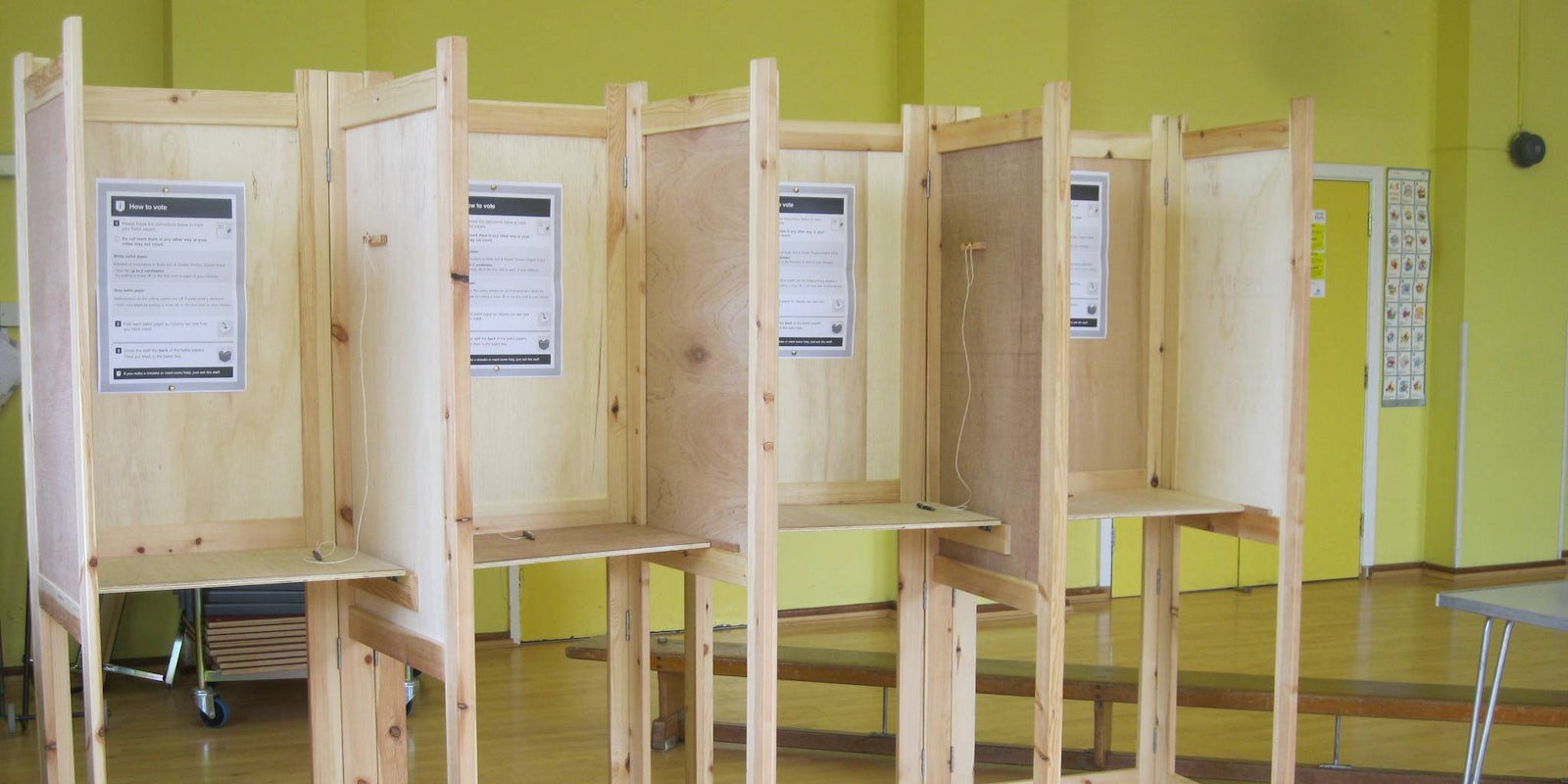On Wednesday, a federal appeals court struck down a New Hampshire rule banning so-called “ballot selfies.” So put on your best duck face and fill in the little circle next to one of the three candidates for state comptroller you’ve never heard of.
In 2014, the state of New Hampshire tweaked a statue about voter intimidation to prohibit people taking picture of their completed ballots. While these photos didn’t necessarily need to also contain the face of the voter, the practice is generally referred to as taking ballot selfies and the state’s rule even specifically bans sharing those images on social media. Fines for violating the rule can run up to $1,000.
A three-judge panel on the First Circuit Court of Appeals unanimously ruled that the New Hampshire law was “a content-based restriction on speech that, on its face, violated the First Amendment.”
The idea behind the state imposing the prohibition was part of an effort to prevent people from selling votes. Central to the entire concept of a secret ballot is that voters are not left with a physical record of how they voted. Candidates, political parties, or other outside groups could offer monetary or other types of rewards to voters in exchange for that evidence—a practice that was fairly common early in the United States’ history.
For idealistic lawmakers and good government reformers looking to prevent the corruption of democracy, the value of a prohibition of on taking pictures of a completed ballot is fairly self-evident. However, as the court noted in its decision, “The legislative history of the bill does not contain any corroborated evidence of vote buying or voter coercion in New Hampshire during the twentieth and twenty-first centuries.”
“Digital photography, the internet, and social media are not unknown quantities—they have been ubiquitous for several election cycles, without being shown to have the effect of furthering vote buying or voter intimidation,” the decision continued. “As the plaintiffs note, ‘small cameras’ and digital photography ‘have been in use for at least 15 years,’ and New Hampshire cannot identify a single complaint of vote buying or intimidation related to a voter’s publishing a photograph of a marked ballot during that period.”
The rule was challenged by the American Civil Liberties Union of New Hampshire, which is representing three New Hampshire voters who state officials have investigated for taking ballot selfies. One of those people was Leon Rideout, a member of the state’s House of Representatives, who took a photo of his ballot in 2014, showing that he had voted for himself and then posted the image to both his Twitter and Facebook pages.
Another plaintiff, Andrew Langolis, took a picture of his ballot showing that he had written in the name of his dog, Akira, because, as he wrote in a Facebook post that accompanied the image, “all of the candidates SUCK.” Langolis was later informed by the state attorney general’s office that he was under investigation.
The third plaintiff, Brandon Ross, was a candidate for the New Hampshire House of Representatives in 2014. He took a photo of his marked ballot, but didn’t post it on social media because he was aware of the law. However, after hearing that other New Hampshire citizens were under investigation for posting ballot selfies, he posted his to Facebook in protest, with the message, “Come at me, bro.”
Last year, a U.S. District Court struck ruled against the law, charging that it violated free speech protections, a position with which the First Circuit agreed. Political speech retains some of the most stringent protection of any types of speech; therefore, the court ruled, the harms being demonstrated need to be more than just theoretical.
For its part, Snapchat, which filed an amicus brief in the case, argued that ballot selfies are an important means of self expression in an era when people carry around powerful cameras in their pockets:
A ballot selfie—like a campaign button—is a way to express support for or against a cause or a candidate. And because it is tangible proof of how a voter has voted, a ballot selfie is a uniquely powerful form of political expression. It proves that the voter’s stated political convictions are not just idle talk. Not only that, but ballot selfies and other digital expressions of civic engagement encourage others to vote — particularly younger voters who have historically low turnout rates. Ballot selfies are thus all at once deeply personal and virtuously public expressions.
And they’re the sort of expressions that the State cannot categorically ban without violating the First Amendment.
Most states have some kind of law on the books governing the conduct of shutterbugs inside or around polling locations and at least 30 could be read to prohibit ballot selfies. Check out the Huffington Post’s guide to see where your state stands.


